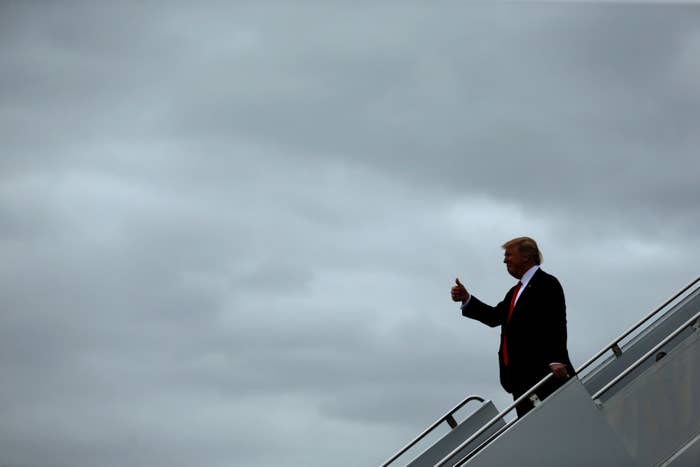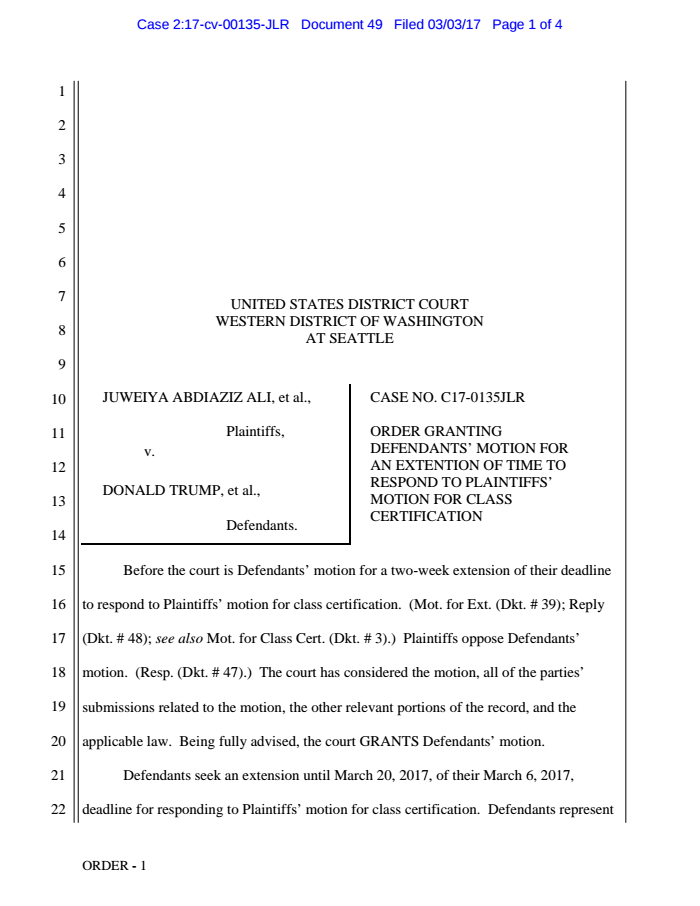
WASHINGTON — A federal judge on Friday granted the federal government more time to respond to a lawsuit challenging aspects of President Trump's refugee and travel ban — but only after noting that he understands "frustrations" about White House statements that "seemingly contradict" the statements the administration has made in court.
US District Judge James Robart, who previously issued a nationwide injunction of most of Trump's executive order, on Friday granted the Justice Department's request for a two-week deadline extension in a case seeking class certification for a challenge to the order.
The Justice Department has sought and obtained similar extensions in other courts based on the department's representation in court that Trump "intends in the near future to rescind the [Executive] Order [at issue in this lawsuit] and replace it with a new, substantially revised Executive Order."
Since the order was signed on Jan. 27, Trump initially said on Feb. 16 that a new version of the order would be coming the week of Feb. 20. That was delayed until this week, and now, with Trump already down in Florida for the weekend, it appears the order will not be coming until next week — at the earliest.
Additionally, White House press secretary Sean Spicer has repeatedly suggested that, while a new order is coming, the administration continues to believe it will win the ultimate legal fight over the first executive order.
The plaintiffs in the Washington case, Ali v. Trump, fought back against the Justice Department's request, noting that there have been "numerous contradictory statements by President Trump and others in his administration to the effect that they will continue to defend the Executive Order at issue in this litigation in addition to issuing a new Executive Order."
In his order, Robart referenced those statements — "Plaintiffs cite numerous transcripts of White House press briefing and of a presidential news conference that are available on the White House website in support of their argument" — and gave a soft warning to the lawyers representing the administration.
"The court understands Plaintiffs’ frustrations concerning statements emanating from President Trump’s administration that seemingly contradict representations of the federal government’s lawyers in this and other litigation before the court," Robart wrote. "Nevertheless, the court will continue to rely on the representations of the government’s attorneys, as officers of the court, which indicate that the new Executive Order will 'rescind,' 'replace,' 'supersed[e],' and 'substantially revise[]' the existing Executive Order."

